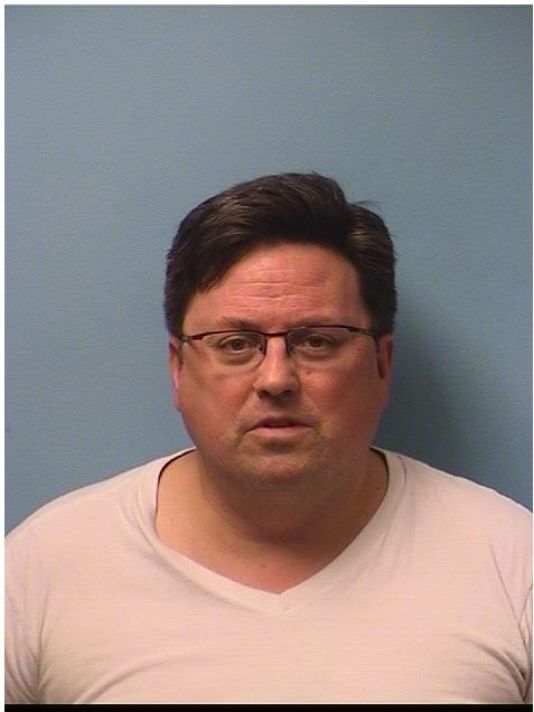How Unusual Is It for a Priest to Be Arrested?
By Stephanie Dickrell
A St. Cloud priest was arrested this week on suspicion of sexual misconduct. Just how unusual is that? Pretty unusual, but becoming more common, a local expert says. The Rev. Anthony Oelrich was arrested Tuesday and faces charges of sexual misconduct for having a sexual relationship with a woman he was counseling spiritually. Has it happened here before? Oelrich's case is the first time a specific statute regarding clergy abuse in a counseling relationship has been used in Stearns County since 2005, said Janelle Kendall, county attorney. That's as far back as her database goes. In the books, it's referred to as criminal sexual conduct in the third degree. The same statute has another section pertaining to psychotherapists forbidding sexual relationships with clients they are counseling. The last time her office can recall a priest — active or retired — as the defendant in a criminal trial is the Rev. Donald Rieder. In 2003, Rieder pleaded guilty to three counts of second-degree criminal sexual conduct and admitted abusing a young girl in the early 1990s while he was pastor at St. John Cantius Church. He admitted abusing three other parishioners but wasn't charged with any crimes. Rieder died in May, 2013. How common is it in Minnesota? "It's a little bit more common now," said Michael Bryant, managing partner at Bradshaw and Bryant PLLC, St. Cloud. He's been representing survivors of clergy abuse for nearly a decade. Bryant said he could name a handful of cases in recent years that involved active priests or clergy in Minnesota. Michael.jpg Lawyer Michael Bryant, Bradshaw & Bryant, says it's becoming more common for authorities to file criminal charges against clergy member accused of sexual misconduct. (Photo: Jason Wachter, jwachter@stcloudt) "For years, there were prosecutors who would say, oh they're going to treatment ... and let them go," he said. "Now there are prosecutors that are not accepting that." Just last month, Jacob Bertrand, 35, pleaded guilty to one count of criminal sexual conduct in the third degree in Dakota County in the Twin Cities. The situation was similar to the one Oelrich is accused of acting in. Bertrand is a Catholic priest on a leave of absence from the Diocese of San Diego, California. He has not yet been sentenced. The complaint alleged Bertrand sexually penetrated a woman in the summer of 2010 in Dakota County. The sexual conduct occurred while Bertrand was providing a private Mass for the victim in the basement of her parent’s home in Mendota Heights. According to the Dakota County Attorney's Office, "Bertrand told the victim that what happened between them was so 'mystical' no one else would understand it so they must not talk about it." Is the priest's diocese part of the criminal charge? Again, it's not common. Charges of aiding and abetting or obstruction of justice could arguably be applied in some cases. The Catholic Church is a strange entity, legally, Bryant said, which makes it difficult to hold accountable as the court could a regular business. "The judiciary still gives them a lot of respect despite a lot of reasons why they don't deserve it," he said. But has it happened? In 2016, Ramsey County Attorney John Choi was able to get the Archdiocese of St. Paul and Minneapolis to admit wrongdoing in failing to protect three children abused by a priest. He did so by first charging the church criminally and then coming to a civil settlement. The archdiocese also agreed to oversight and transparency initiatives to lessen the possibility of child sexual abuse. Is it easier or more difficult to try cases of criminal sexual conduct in the third degree? Yes and no, Bryant said. With criminal sexual conduct, you're dealing with an adult witness, which has pros and cons. Adults can make better witnesses than children. But adults can also be questioned about how the incident came to be, even though the blame should still fall on the clergy member or psychotherapist, he said. Another difficult aspect is defining "religious or spiritual advice, aid, or comfort." Does praying silently at the same time constitute spiritual advice? What about discussions of theology? "It's something you gotta look at," Bryant said, "whether you've blurred the lines." Questioning that premise has been used as a defense in Minnesota, he said, where a priest tried to claim it was a friendship, not a counseling relationship. Why is it becoming more common? Two reasons, Bryant said. Prosecutors are more willing to charge members of clergy with crimes. And witnesses are more likely to come forward sooner, within the statute of limitations. Statute of limitations can be impacted by the type of crime, the scope, whether there were attempts to conceal the crime or commit fraud, Bryant said. "The best thing about the Child Victim Act was that there were a lot of people coming forward who had remained silent for years," he said. The act was passed in 2013 and made temporary changes to statutes of limitations in civil cases for child sexual abuse. That allowed victims to file claims they otherwise would not have been able to. It shined light on secrets long hidden and made talking about abuse more common. Now, Bryant is seeing a change in thinking about sexual assault in general. "With the trend nationally, more people are coming forward and are not letting their abusers get away with things," Bryant said. "I think it's probably a mentality change and the right time for people to come forward."
|
.
Any original material on these pages is copyright © BishopAccountability.org 2004. Reproduce freely with attribution.
